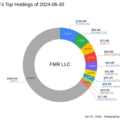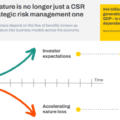Introduction
In a significant financial development, Moody’s has recently downgraded Israel’s credit rating. This adjustment comes as the ongoing conflict in the region exerts a considerable strain on the nation’s economy. With rising tensions and uncertainty, investors and market analysts are closely monitoring the situation, raising questions about the future economic landscape of Israel.
The Downgrade Explained
The credit rating agency, Moody’s, reduced Israel’s rating from Aa2 to Aa3. This downgrade is largely attributed to:
This move by Moody’s reflects their concerns about the overall stability of Israel’s economy as it navigates through turbulent times.
The Economic Landscape
The war has created an atmosphere of uncertainty that is affecting various sectors of the economy. Key impacts include:
Analysts are projecting that if the conflict continues, these issues may lead to a prolonged economic downturn, further justifying Moody’s decision.
Investor Sentiment
Despite the downgrade, some investment analysts remain cautiously optimistic about Israel’s long-term prospects. They argue that Israel has a resilient economy, bolstered by:
If the conflict stabilizes, these factors could provide a foundation for recovery and growth that might mitigate the current concerns expressed by Moody’s.
Conclusion
In summary, Moody’s downgrade of Israel is a reflection of immediate financial pressures due to ongoing warfare. While the current economic outlook seems grim, the resilience and adaptability of Israel’s economy could offer hope for recovery in the future. Investors and stakeholders will need to keep a close eye on developments, hoping for a resolution that can return stability to the region and its economy.











Leave a Reply